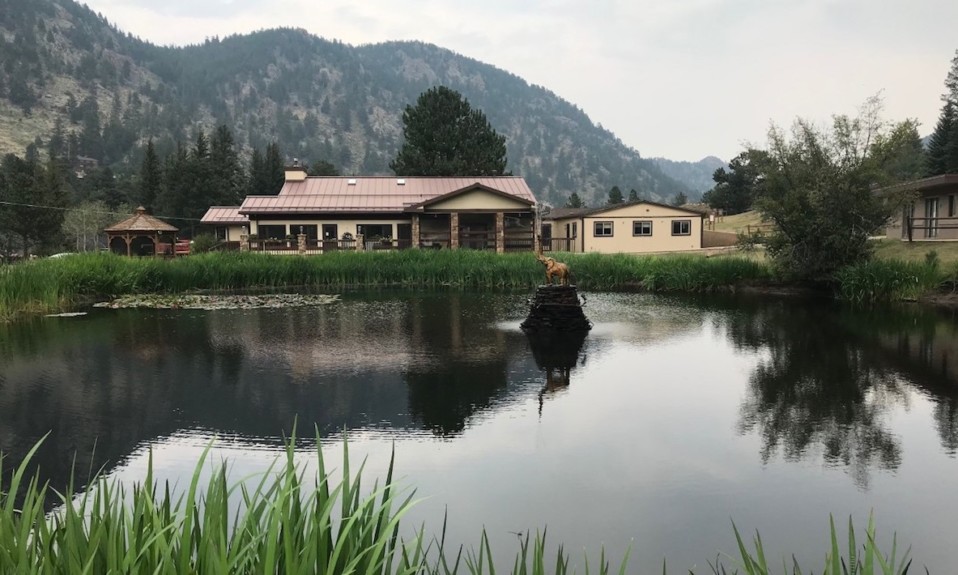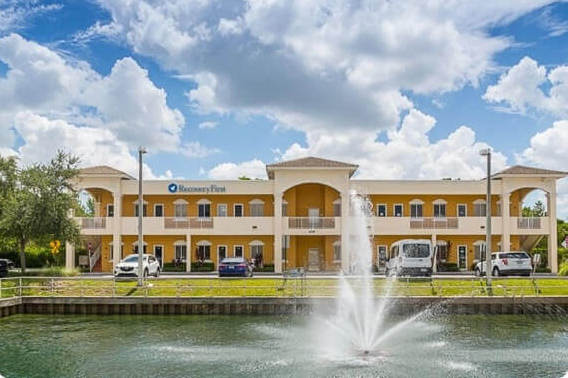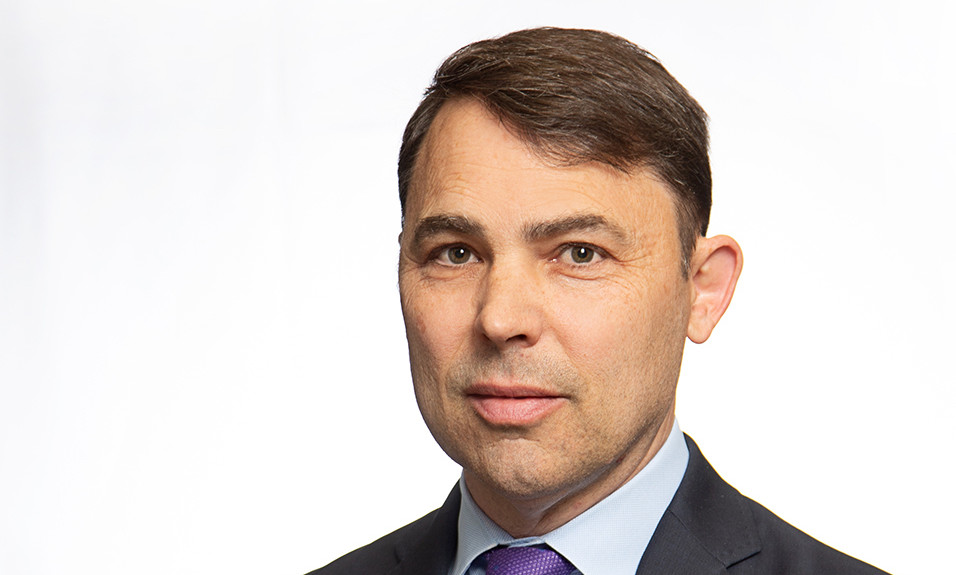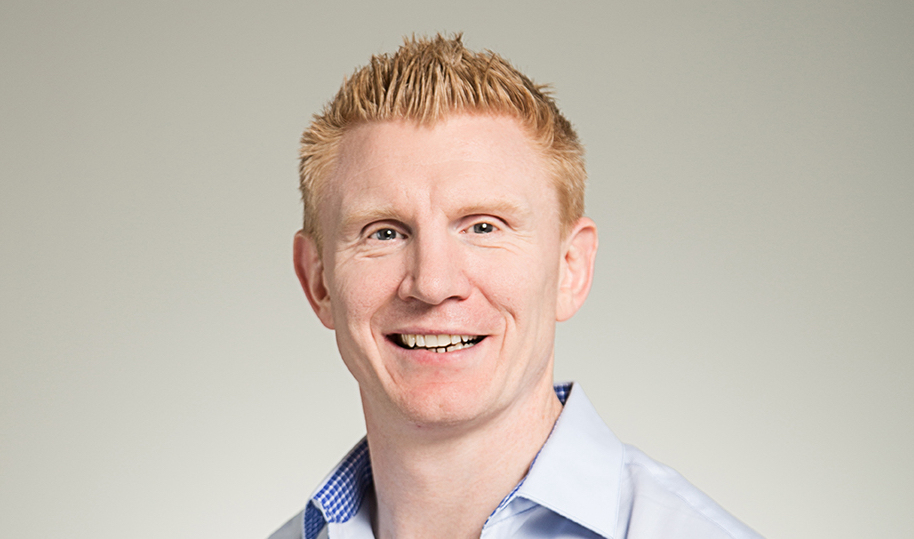Harmony Foundation CEO Jim Geckler talks about his efforts to build sustainable recovery
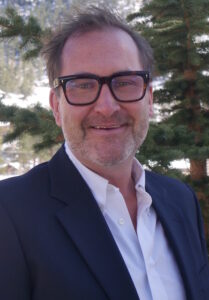
By Jennifer Taylor
It was mid-April of this year, and, at 7,522 feet, the picturesque setting outside Jim Geckler’s window included mountains and trees covered in fresh snow. Earlier that morning, a moose had walked through the 42 acres of Harmony Foundation, an addiction treatment center located in Estes Park, Colo., that straddles a northeast border of Rocky Mountain National Park. The moose, he says, broke the ice of the pond, lowered its head to drink some water and then moved on.
“There’s something spiritual about this property,” says Geckler, president and CEO of Harmony Foundation. “It’s a nice place to start your journey.”
Originally, the property operated as a mountain resort, but 52 years ago, Harmony’s founders leased and eventually purchased it as a recovery center for men with alcohol use disorder. Since then, the center’s reach has grown with its mission to provide the backbone for sustained recovery from the diseases of drug and alcohol addiction.
Geckler took the helm at Harmony four years ago, a few decades after his own experiences in treatment. While in recovery, he began his career in the treatment field managing an LGBTQ sober house in Minneapolis before becoming COO of an intervention group in St. Paul. Not long thereafter, Geckler went to work for the Minnesota-based Hazelden Betty Ford Foundation, working in its centers across the country, before he was brought on at Harmony.
“I loved the intervention world, loved working with families and helping them find a way to get help for someone who wasn’t quite ready to get help or wasn’t aware of how much their behavior or their disease was impacting the people who cared about them,” he says.
We want to make all our decisions around how to best support the clients and their families, to make sure that’s why we’re doing something. From our budget decisions to program decisions … we do it because we want to make sure it’s going to create the right environment for people.”—Jim Geckler
These days, Geckler has his eye on innovative treatment approaches that focus on getting to the root of people’s addiction through physical, emotional and spiritual healing. Harmony offers residential and intensive outpatient programs [IOPs], medical evaluation, a detox program, specialty and support groups, a recommitment to recovery program and a family program.
He spoke with TreatmentMagazine.com recently about what he gained from his experience at Hazelden, the innovations Harmony is focused on, and how marijuana legalization in Colorado and a growing number of other states coincides with addiction recovery at his center.
Q: What did you learn from Hazelden that has been useful at Harmony Foundation?
A: One of the things I appreciate about my time at Hazelden is that underlying all of [Hazelden’s] treatment—and something that we do here—is client-centered care and kindness. In meetings at Harmony, the last question is: “Are we doing this to benefit the client or to benefit us?” And if the answer is “us,” we relook at the decision.
We want to make all our decisions around how to best support the clients and their families, to make sure that’s why we’re doing something. From our budget decisions to program decisions, to the colors we paint the walls, we do it because we want to make sure it’s going to create the right environment for people.
When you’re a single brand, you want to make sure that wherever you walk into a facility, you’re getting the same care. We adopted that when we opened our recovery support outpost in Fort Collins [Colo.], where we’re about to launch in-person IOP again. When we open a new setting or look at a new building, we make sure the colors are the same and the furniture looks similar, so that you know you’re walking into our Harmony facility. We’ve had clients mention, “I was nervous about going to this alumni meeting, or I was nervous about going to an assessment for outpatient. But I walked in, and it was just like I was sitting in the lodge. I felt at home right away.” I think that’s important.

Q: Why is Harmony Foundation uniquely successful in treating addiction?
A: We’ve always been very focused on our mission. We don’t grow in areas that don’t connect with the mission, which is about creating the foundation for recovery. Two years ago, we added outpatient [treatment]. We had long discussions, because we have been a residential and detox facility for 52 years. In the past, we tried outpatient [care] that didn’t work quite so well—it didn’t have the oversight or the financial backing when it was launched. We were able to do outpatient two years ago because we started it here on campus, so there wasn’t [any] overhead.
We have been a foundational program from residential and recently expanded to outpatient. We are currently launching our third outpatient group, and have been at capacity on the two for about a year now and are poised to launch a partial hospitalization program as a new level of care for Harmony. Realizing that most people enter or start their foundational work around recovery at an outpatient level, we added [this] level of care because it was demanded by our mission.
When we introduced an expanded approach to medication-assisted treatment about five years ago, we went back to our mission to make sure that it was there.
We also looked at how we can continue to support people once they’re done with treatment. When people come to treatment, they really need a lot of help—they need clinical management of their disease. Our goal is to move them to a place where they can self-manage, and we help with self-management [through] ongoing workshops for our alumni and their families and friends.
Q: Is there a particular therapy or approach that is unique to Harmony?
A: We are a 12-step, abstinence-based program. We recognize that abstinence means different things to different people. We utilize medication-assisted recovery and help people get stabilized and build a community. Like most organizations, hopefully, there’s been an increased awareness around addressing trauma and the trauma needs of people as they come to treatment. One of the coolest things we’re doing in both our detox unit and our residential unit is the adaptive virtual reality [therapy] to help people stabilize and manage trauma responses. We have some great clinicians who are trained in VR work and using the goggles [in scenic environments] to help people regulate. The clients love it.
The virtual reality work [teaches] people [to] find a place where feelings [are regulated] and to relax. It just teaches you how to slow your body down so that you can address what’s actually going on instead of sitting in trauma.
The hardest thing is when a family calls and needs help for someone, and they just don’t have the funds for it. They don’t have insurance to come to treatment.”—Jim Geckler
Q: How has the legalization of marijuana in Colorado and elsewhere impacted Harmony Foundation?
A: We’ve been fortunate that Estes Park does not allow marijuana distributors. You can’t sell marijuana in Estes Park. We don’t have clients walking away to go and buy weed, which is good. We end up treating some people for marijuana more at the outpatient level because insurance doesn’t usually cover marijuana addiction. Today, it really doesn’t affect us.
I think that’s the biggest thing that’s been a problem is in continuing care or post-residential discussions. We have a lot of people who have the mindset of, “It’s legal. It’s like smoking cigarettes.” We went nicotine-free on Jan. 1, 2021. So, no smoking, no chew, no vaping at all on campus. Our biggest argument is probably around people who say: “I’m not going to stop smoking pot. I use it for anxiety.” Or, “It doesn’t affect my life.” It continues to be a discussion here because you can go to a pot shop and buy it. But I don’t think it has affected us that greatly.
Q: What’s the number one policy change you would make if you were in charge of our country’s laws and healthcare?
A: It’s probably around access. I am not exactly sure how I would change the policy except to make it easier for people to access treatment. We are a mid-priced treatment center. If you were to come for a full detox, and we work at an average length of stay [of] about 26 days, the cost would be about $28,000. Then there are some low-cost or free programs that are very hard to get into just because of the number of people who want to get in. Medicaid does not pay for residential treatment in Colorado. So we can’t help those folks. We end up giving about half a million dollars in scholarships and discounts—that’s what we did last year. That requires a lot of fundraising.
I would like to see us be kinder internally, as a field. There are lots of different ways to improve the quality of your life, and address your relationship with drugs and alcohol.”—Jim Geckler
The hardest thing is when a family calls and needs help for someone, and they just don’t have the funds for it. They don’t have insurance to come to treatment. The thing that breaks our hearts, too, is when we’ve got someone who’s able to come to residential [treatment], clearly needs a long-term experience or mental health care, but because of their policy [are not able to receive treatment]. I’m not an anti-insurance man. I think insurance has helped hundreds of thousands of people access treatment. But it has its limitations. We need to look at how we’re providing care.
Q: What is your top treatment takeaway from your time in the field?
A: I would like to see us be kinder internally, as a field. There are lots of different ways to improve the quality of your life and address your relationship with drugs and alcohol. We are a 12-step abstinence program. I’m a 12-step guy. But I also know there are people, for whatever reason, who can’t hear that language and need other approaches. It saddens me when I look at treatment groups on Facebook, and people are just bashing one way or the other. I would like to see a kinder approach to partnership. I’d like to see more collaboration. We recognize that we can’t be everything for every client. I’d like to see people say, “Put the client and the client’s needs first.”


